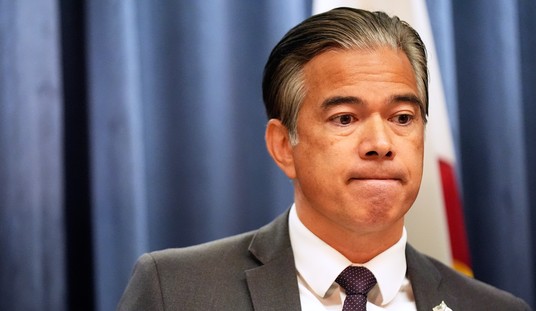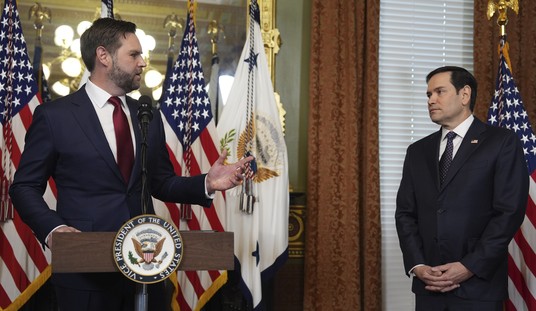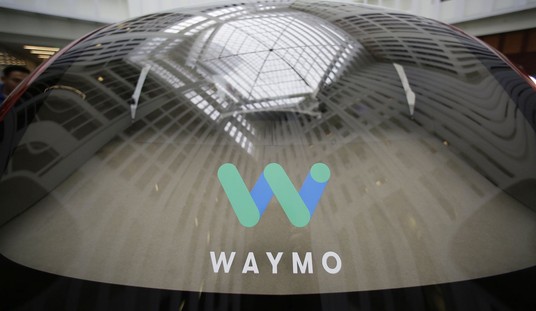Several years ago, before Delta bought Northwest, I flew into Minneapolis on a Northwest flight. As the plane touched down on the runway and began its taxi to the gate, the pilot thanked us by saying, “We here at Northwest know you have a wide variety of choices of bankrupt airlines, and we thank you for choosing ours.” If the Department of Justice and several states get their way, we may have a couple of more choices in a similar vein for a little while longer:
The U.S. Justice Department and attorneys general for six states and the District of Columbia on Tuesday filed a civil antitrust lawsuit challenging the proposed $11 billion merger between US Airways Group Inc. and American Airlines’ parent corporation, AMR Corp.
The merger “would substantially lessen competition for commercial air travel in local markets throughout the United States and result in passengers paying higher airfares and receiving less service,” the Justice Department said in a news release.
AMR filed for bankruptcy two years ago, and the merger was a key to its emergence. Forbes notes that the merger had already won approval from the EU, which makes this intervention a bit of a surprise. It’s also a reminder to executives to watch their tongues in public when discussing mergers:
Though the agreement has already won approval from European regulators, U.S. attorney general Eric Holder said the tie-up would result in decreased competition and higher prices for air travelers due to the industry’s track record of “coordinated behavior.”
In its complaint, the DoJ, joined by attorneys general from Arizona, Florida, Pennsylvania, Tennessee, Texas and Virginia, argues the merger would “leave three very similar legacy airlines—Delta, United, and the new American—that past experience shows increasingly prefer tacit coordination over full-throated competition.”
The government is also trying to use the remarks of American and U.S. Air executives against the companies. “There is no reason to accept the likely anticompetitive consequences of this merger,” the complaint reads. “Executives of both airlines have repeatedly stated that they do not need this merger to succeed.”
This is the most significant anti-trust move by the Obama administration since their suit to stop the AT&T purchase of T-Mobile. That deal has essentially collapsed, but T-Mobile’s status appears to be improving anyway in the competitive market, using a new pricing plan to grow its subscriber base for the first time in years. It also expanded its reach with an acquisition of its own this year, MetroPCS, and T-Mobile’s success certainly boosts the anti-trust strategy at the Department of Justice. That innovation in customer pricing likely would not have happened had AT&T swallowed T-Mobile.
The Wall Street Journal gives more background on the anti-competitive argument on US Air-American merger, noting that it hits very close to home in the nation’s capital, emphasis mine:
The government’s complaint attempts to use the words of US Airways executives against them in making the case that the merger would be bad for consumers.
The complaint cites US Airways President Scott Kirby’s past statement that fare increases were implemented “because of consolidation.”
At a 2012 industry conference, Mr. Kirby also said consolidation “allowed the industry to do things like ancillary revenues… That is a structural permanent change to the industry and one that’s impossible to overstate the benefit from it.”
The lawsuit says the merger would give the combined company control of 69% of the takeoff and landing spots at Washington Reagan National Airport. The government contends that would lead to higher fares for passengers there.
The department’s lawsuit alleged the merger would make it easier for the remaining airlines “to cooperate, rather than compete, on price and service.”
Maybe mergers are like real estate, where the first three priorities are “location, location, location.” Let’s just say that it would be difficult for a big merger to avoid scrutiny under any circumstances in this administration, but one that makes Reagan National practically a monopoly hub is going to guarantee some kind of action.
And it may well be that this intervention is necessary. Mergers have reduced competition (and jobs) in the industry as a trade-off for more efficiency. If American can survive without it, perhaps the consolidation trend needs to be reversed or at least considered more closely. On the other hand, it’s also possible that American will fail on its own, which would leave a big hole in the flight schedule and not too many players able to fill it. I’d be more comfortable with a reluctant intervention by an administration without an agenda, rather than an enthusiastic intervention by one whose approach to markets has been to expand top-down regulation and control.








Join the conversation as a VIP Member